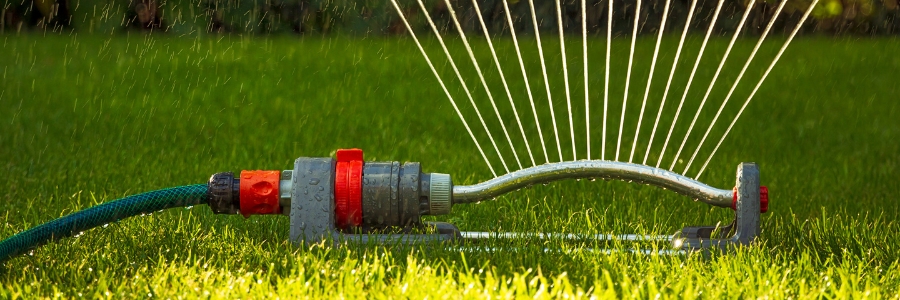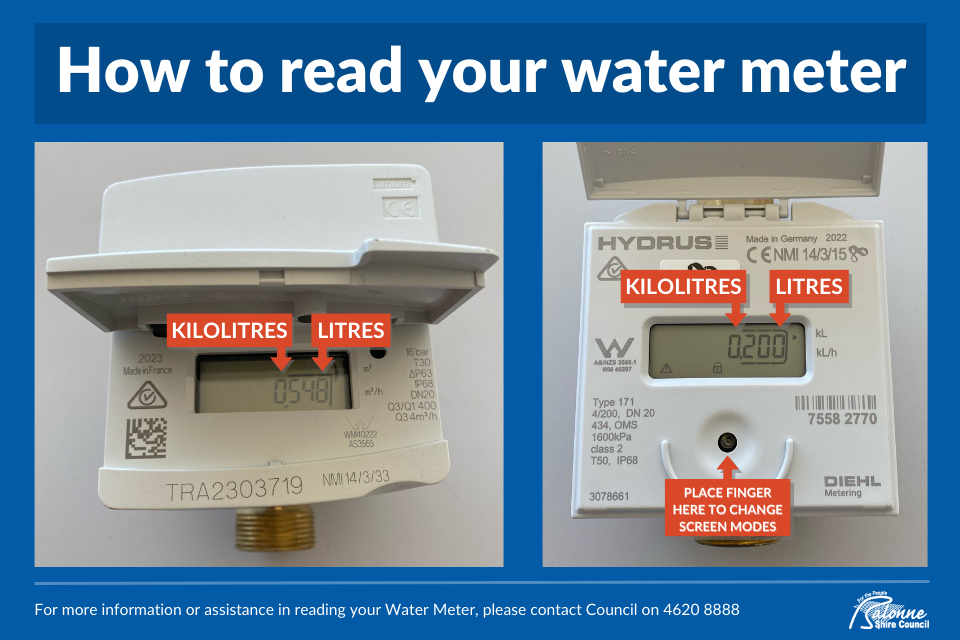Water Supply Services

-
CURRENT ST GEORGE WATER RESTRICTIONS
Level 0 Water Restrictions are currently in place in St George. The aim of these Level 0 Water Restrictions is to prolong our remaining allocation of river water for St George.
St George’s Town (bore) Water supply, which is used for indoor household use will not be impacted by these restrictions.
Below is an overview of Level 0 Water Restrictions for river water use.
LEVEL 0 WATER RESTRICTIONS - ST GEORGE RIVER WATER Residential Properties Water any time, any day - considering advised target levels of 4,200 litres per household per day and 125,000 litres per household per month.
All Schools & Caravan Parks Water any time - Monday to Thursday. Other Businesses Odd Property Numbers – water any time on Tuesdays, Thursdays, and Saturdays.
Even Property Numbers - water any time on Wednesdays, Fridays, and Sundays.Council Parks & Facilities Watered in accordance with parks and gardens program. Handheld Hoses - All consumers Water any time. Other variations to the above Subject to Individual Council approval. Open-ended, unattended hoses must not be used at any location at any time. -
Council currently has three different types of Water Meters in place in St George, which has occurred due to availability and sourcing requirements of the years.
Despite their differences, all types of Water Meters in place essentially have the same layout in terms of reading the water usage of each individual Meter.

-
-
The Balonne Shire Council owns and operates seven water supply networks in the towns of Bollon, Dirranbandi, Hebel, Mungindi, St George and Thallon.
Town Water Source Bollon Untreated artesian bore supply. Dirranbandi Treated water mixed with untreated artesian bore supply. Hebel Untreated artesian bore supply. Mungindi Moree Plains Shire Council treats water from the town weir on the Bokhara River in Mungindi, NSW and meters it before it crosses the border to Balonne Shire ratepayers in Mungindi Qld. St George (Indoor) Untreated artesian bore supply. St George (Outdoor) An untreated supply from the town weir on the Balonne River is used for gardens, toilets and fire fighting. Water is purchased from SunWater, who determines Council's allocation according to supply availability. Thallon Untreated artesian bore supply. -
Rainwater tanks are installed at most homes throughout the shire. However, they’re not always safe to drink from.
Bore water is our potable water supply, tested monthly to ensure compliance with drinking water standards.
-
Saving Water in the Garden
1. Planning and preparation
Careful planning is the key to saving water in the garden.
-
Group plants of similar water needs in specific areas for more efficient watering
-
Set windbreaks to protect delicate species and to reduce water needs
2. Improve the soil
Soil moisture content is vital to the health of any plant. You can improve the organic matter of your soil by adding manure, compost, peat, etc. A high level of organic matter in your soil will improve plant growth, use less water and fertilisers and promote healthier plants.
3. Grow the right plants
When choosing plants, it’s important to not only consider size, shape, function and appearance, but also the amount of water which they will require. Choose water-efficient plant and you will be saving money on your water rates and helping to create a low maintenance garden.
4. Reduce grassed area
Lawns require more water than other areas of your garden and therefore offer the best opportunity to help you conserve water and save money. Lawns should be designed to be practical and useful and not just as a fill-in area in your garden.
5. Water wisely
The ideal watering system is one which will deliver water directly to the plant roots in the correct quantiles. Drippers, tap timers, trigger hoses and micro-irrigations systems should be used to deliver water in the most efficient manner.
6. Use more mulch
A good mulch of at least 75mm thick, reduces evaporation from the soil surface by as much as 70%. Mulch discourages wee growth, prevents erosion and evens out soil temperature variations.
7. Garden maintenance
The above six secrets will lead to a significant reduction in water use and the time and effort in your garden. However, a water-efficient garden requires regular maintenance to ensure it remains healthy.
-
